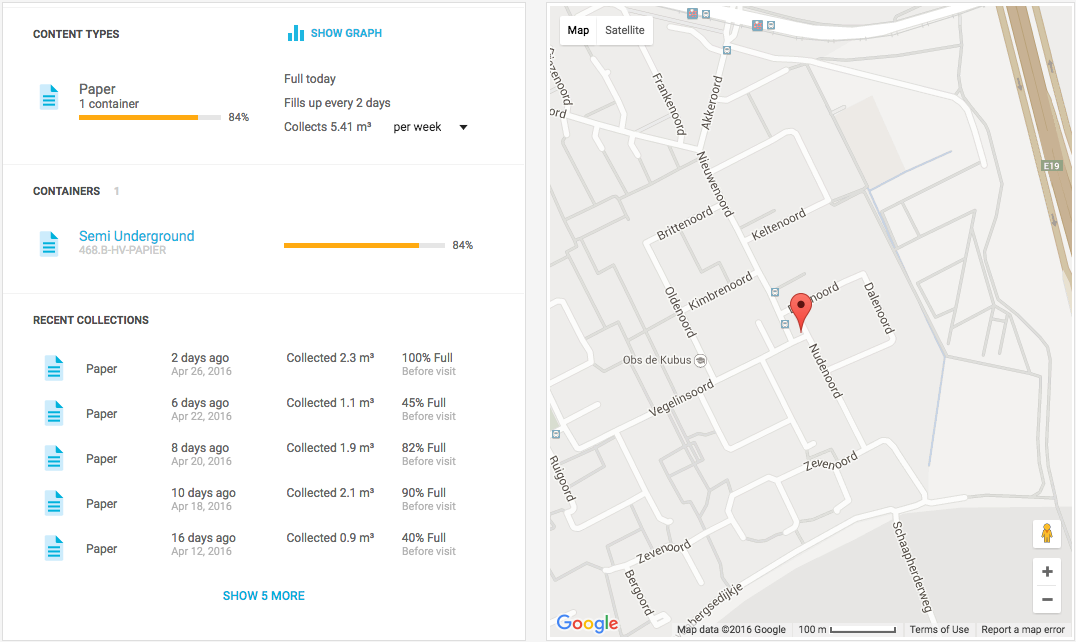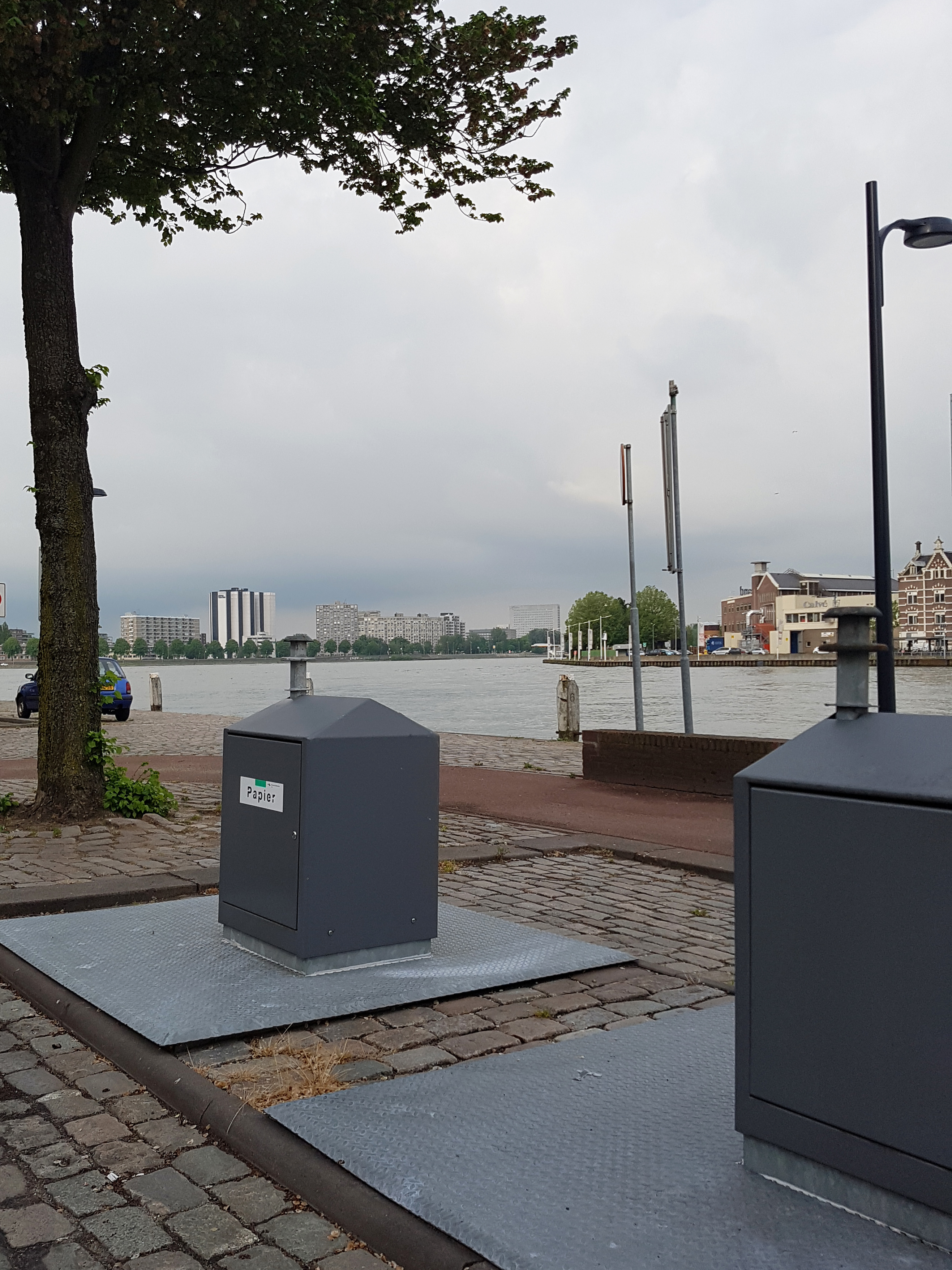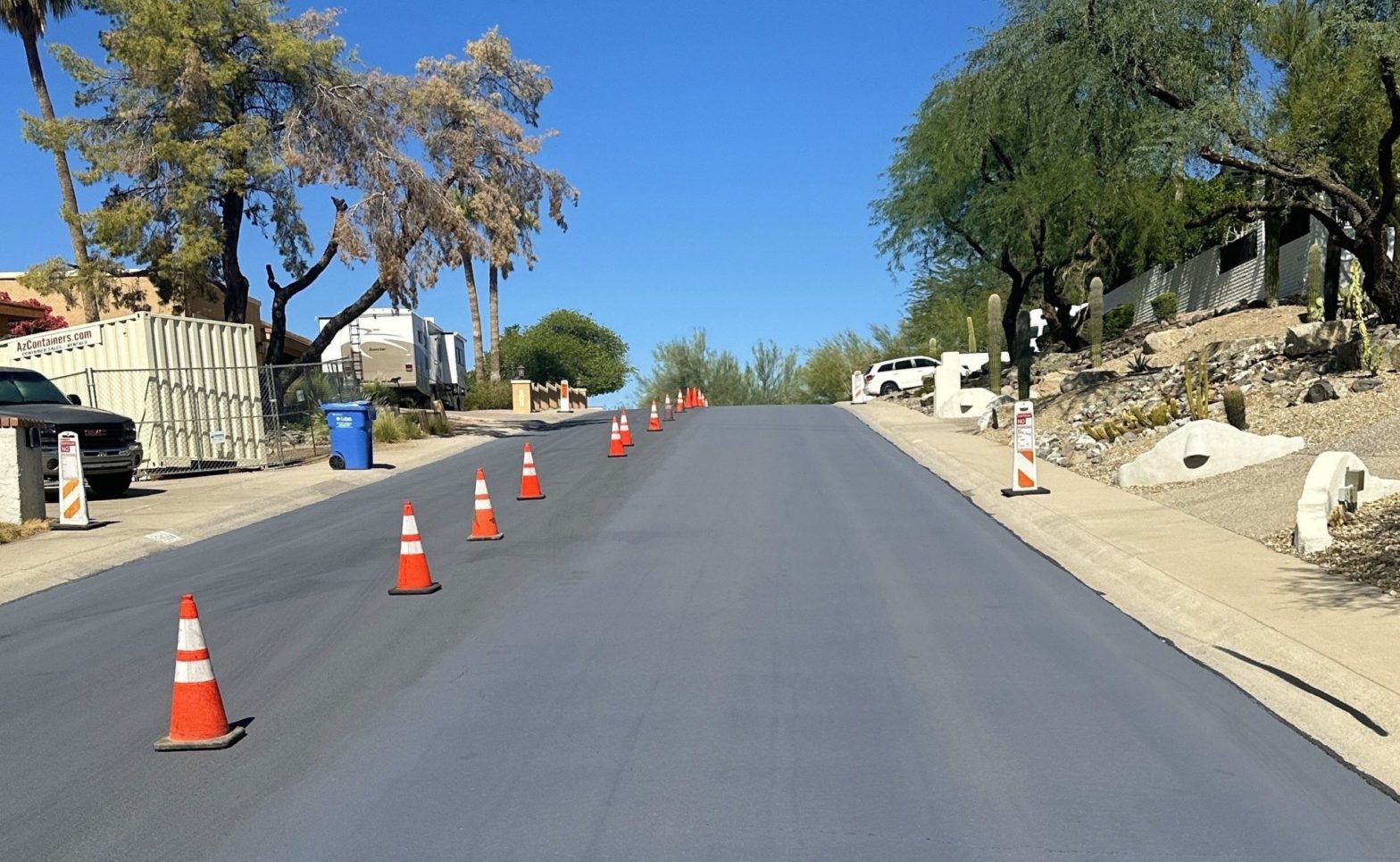
Photo: Detailed-overview-of-each-monitored-container
Rotterdam increases efficiency of waste collection
01 June 2016
by Nick Michell
The municipality of Rotterdam is to introduce the second phase of a Paper and Cardboard Waste Fractions project with Enevo, an innovator in smart waste management and its Dutch partner TWS. The extended use of Enevo waste management data analytics and route planning will help further the city’s push towards a circular economy.
“The goals we set for the pilot have been easily surpassed and there are less trucks driving through the city on more efficient routes,” Joost van Maaren, Head of Collection and Reuse of Waste at the municipality of Rotterdam, told Cities Today. “The technology to monitor fill-levels in waste containers is well understood, however, key to our requirements was a dynamic route planning system. Enevo offers one of the only systems that reliably offers both capabilities. This essential development is helping us to eliminate static collection routes and bring a focus on only emptying containers which need servicing.”
The project extension will double the number of monitored waste containers and increase the use of Enevo Smart Plan software for optimised collection route planning to 40 percent of the underground paper and card waste containers in the city.
Initially deployed as a pilot to demonstrate the effectiveness of Enevo’s technology, Rotterdam also enlisted the expertise of its waste collection team to optimise the Enevo Smart Plan route planning software. At the same time, Rotterdam set a target to increase the efficiency of collections by 20 percent, which was easily surpassed.

“The results of the pilot in Rotterdam shows that Enevo’s IoT technology and analytics can help uncover new levels of efficiency in the hands of a committed and expert team,” said Charbel Aoun, Enevo Chief of Sales and Strategy. “Not only is predictive waste management system an effective way to reduce the cost of waste handling, it can also help to incentivise reuse and recycling, and build the circular economy.”
The waste management solution brings together waste container monitoring, data analytics and fill-level forecasting, route planning and driver route guidance via in-cab tablet computers. Wireless sensors monitor the fill level of the waste containers, transmitting the information to cloud servers.
This data is combined with historical project information to generate trends that the system analyses to generate the most efficient collection routes, based on fill level criteria, on a daily basis. These routes are directly communicated via the cloud service to provide that day’s collection route.
“Through education and campaigns we try to make our citizens more aware of waste separation,” added van Maaren. “In addition, our municipal collection infrastructure is aimed towards the separation of waste streams. Incentivising reuse and recycling only works when you provide the necessary means and we are currently increasing the number of containers for these waste streams (paper, glass, plastic, textile).”






